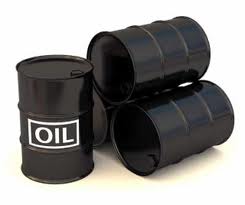
Petroleum
Products Pricing Regulatory Agency, PPPRA, is set to publish a list of
accredited international companies that supply Nigeria with refined petroleum
products, as part of ongoing measures to sanitise and streamline downstream
operations.
The list,
which has been compiled and awaiting ministerial approval, may contain about 20
companies comprising both local and foreign companies, which either lift crude
or supply refined products.
Accordingly,
all marketers or trading companies wishing to import refined petroleum products
under the Petroleum Support Fund, PSF, are expected to do so through the
accredited companies for proper documentation and reimbursement.
Confirming
the development in Lagos, yesterday, the Executive Secretary, PPPRA, Reginald
Stanley, who could not confirm the exact number of participants, as it was
still awaiting approval and therefore, subject to change, however, threatened
to sanction any supplier who slips from the code of conduct upon the
publication of the list.
Among the
companies that would likely make the list are Trafigura Beheer BV, Vitol Group,
Glencore International, Talaveras Group, Santana Oil, all which have been
Nigeria’s trading partners over the years, while the local companies may
include Sahara Group, Oando Group, and a host of many others.
Reginald said
the accreditation is meant to not only ensure accountability in products
distribution, but also to hold the companies responsible for any malpractice in
the course of their operations in the country.
He explained
that the move became necessary following the corruption that engulfed the PSF
through almost N3trillion were paid to marketers in 2011, many of whom were
phantom operators.
Through the
PSF scheme, marketers were reimbursed with subsidy for the price differentials
between the landing cost and the pump prices of regulated products, but the
abuse of the system as uncovered by various subsidy probes instituted by
government in 2012, called the need for a re-assessment of the scheme pending
the full deregulation of the downstream sector.
The PPPRA
boss also said that upon approval, the participants would be read the riot act,
stipulating the Code of Conduct, adding that the Agency expected all marketers
in the country to comply with the directives or be delisted.
He added that
apart from being accredited, the companies will also sign a bond that would
hold them accountable for any misdeed.
Stanley
envisaged that the accreditation of suppliers will further crash the cost of
subsidy paid by the Federal Go0vernment, noting that subsidy fell from
N2.9trillion in 2011 to a little over N1trillion in 2012 and attributed the
fall to the followings:
Pump price
increase of petrol from N65 to N95 per litre Fall in volume by 23 percent from
60 million litres per day to 40 million/L/d Pruning of the number of products
importers by 67 percent from 128 to 38 companies
Stanley added
that the agency has also introduced the 3-3-2 structure used by independent
inspectors to validate vessel arrival, discharge of products into shore tanks
and truck-out from the storage depots that received from the vessel.
Furthermore,
he said these have enhanced the Nigerian Content initiative of the Federal
Government by encouraging indigenous participation through the ownership of the
downstream facilities. There has also been stability in the supply and
distribution of petroleum products across the country, thereby bringing an end
to the perennial queues.
He said that
the agency has also ban cargo from storage tanks in West African coasts except
No comments:
Post a Comment